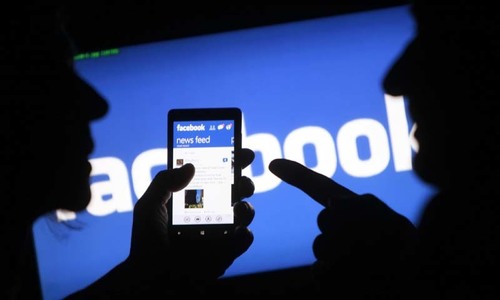A group of top French experts on Friday slammed efforts by social networks to self-regulate and their "lack of credibility" as President Emmanuel Macron met Facebook chief Mark Zuckerberg for talks.
The leading officials and experts commissioned by the French government called for regulation of the group and other online platforms after being given unprecedented access in recent months to Facebook's operations.
Zuckerberg met Macron at the Elysee Palace on Friday, facing new pressure to crack down on the spread of disinformation as well as a call from a co-founder of Facebook for the California-based giant to be broken up.
The French report called “Creating a French Response to Make Social Media Responsible”, was drawn up by experts and top French civil servants and has been submitted to France's digital ministry.
It acknowledged the huge freedoms offered by social media in the modern world, but said that “the capacities offered by social media provoke unacceptable abuses of these liberties".
"These abuses by individuals or groups have not yet received a satisfactory response from Facebook, YouTube, Twitter or Snap, to name but some," it said.
The report said that the response by big social media groups like Facebook to abuses and disinformation too often came after the fact and when damage was already done.
"(Self-regulation) lacks credibility," it concluded, adding that the lack of transparency "arouses suspicion over the reality of the action by the platforms". The report proposed that each member state of the European Union set up its own regulatory authority to police social networks, rather than relying on regulation of them in the countries where they are based.
Facebook has its European headquarters in low-tax Ireland which under current rules would have responsibility for regulating it.
“Through the excesses that they enable, social networks create problems in other countries, (which are) difficult to see by the home country,” the report added.
Macron has been one of Europe's most vocal critics of light-touch regulation of Zuckerberg's empire which includes Facebook as well as the widely used Instagram and WhatsApp platforms.
Chris Hughes, a co-founder of the Facebook, wrote in an editorial published in The New York Times on Thursday that the company should be broken up.
“It's time to break up Facebook,” wrote Hughes, who along with Zuckerberg founded the online network in their dorm room while both were students at Harvard University in 2004.
Hughes said Zuckerberg's "focus on growth led him to sacrifice security and civility for clicks", and warned that his global influence had become “staggering".
Draft legislation in France to increase tax on digital giants was also likely to be on the agenda of Macron's meeting with Zuckerberg after lawmakers gave initial approval last month despite warnings from US officials that the move is “discriminatory”.
Turkey fines Facebook for failing to protect personal data
Turkey's state-run news agency says the country's data protection agency has fined Facebook 1.650 million Turkish lira ($270,000) for contravening data laws.
The Turkish Personal Data Protection Authority said on Friday the fine was imposed over a software bug that exposed millions of Facebook users' private photos to third-party app developers.
The authority ruled the social media company had not taken the required technical measures to protect the data and failed to notify authorities about the bug in a timely manner.
Facebook said in December that a software bug may have affected 6.8 million people who used Facebook to log into other services and granted permission for third-party apps to access photos for 12 days in September.













































